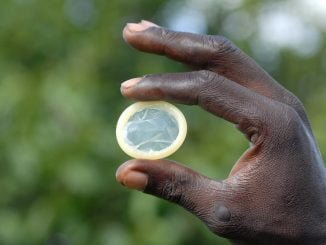
Kampala, Uganda | By Michael Wandati | During the 64th session of the OACPS Parliamentary Assembly and Constitutive Sessions of the Organization of African, Caribbean, and Pacific States (OACPS) – the European Union General Assembly in Luanda, Angola, Uganda’s Deputy Speaker of Parliament, Thomas Tayebwa, urged the European Union (EU) to cease the shipment of counterfeit electrical accessories to Africa. Tayebwa emphasized the need for Africa to receive high-quality and sustainable products instead.
Addressing the assembly on Tuesday 20, February 2024, Tayebwa highlighted the severe risks posed by counterfeit electrical items, such as timing switches, multi-plugs, adapters, terminal connector blocks, circuit breakers, and earth leakage devices. He pointed out that these products can lead to injuries, electric shocks, and even fire outbreaks.
In response to the challenge, Tayebwa called upon European leaders to take a stand against the shipment of counterfeit electrical accessories to Africa. Additionally, he urged African leaders to raise awareness about the extent of the problem and work towards finding solutions.
Beyond the issue of dumping counterfeit electrical accessories to Africa, Tayebwa rallied African leaders to reject what he deemed an unacceptable proposal by the European Union. This proposal sought to impose heavy penalties on Africa for climate change, despite the continent being the least emitter. Tayebwa urged leaders at all levels to unite against this proposal.

Verner Ayukegba, the Senior Vice-President of the African Energy Chambers on Access to Reliable, Affordable, and Sustainable Energy for the Africa-EU, shared alarming statistics during the assembly. He highlighted that over 600 million Africans lack access to reliable or affordable energy, while an additional 900 million have no access to clean cooking fuels, predominantly affecting women and children.
Ayukegba emphasized that the priority for the vulnerable population is not the source of energy but rather having access to reliable and affordable energy. Whether it comes from gas, solar, or hydro, the crucial factor is ensuring that the energy is dependable and reasonably priced.
“We do believe transition is important. We do believe that energy transition is necessary. But Africa needs to industrialize. We need jobs. And so if that means that we need to use gas resources, we do need to hurry up and use those gas resources,” said Ayukegba.
Also Read: E-WASTE: An emerging environmental challenge in the contemporary Uganda
In reaction to the concerns raised, Marc Angel, the Vice President of the European Parliament, underscored the significance of ensuring access to reliable, affordable, and sustainable energy in the partnership between the European Union and Africa.
He stated that the EU has dedicated a substantial commitment of up to Euros 20 billion, approximately 83.836 trillion Shillings, to facilitate the implementation of a minimum of 50 gigawatts of renewable energy in Africa. The objective is also to extend electricity access to at least 100 million people on the continent by the year 2030.
“It seeks to increase access to affordable, reliable, and sustainable energy services for African people and businesses to promote the increased generation of renewable and sustainable energy but also increase energy efficiency,” the EU Vice President said.
As per the statistics provided by the European Commission in 2020, the European Union emerged as the primary trade partner for Africa. It accounted for 33 percent of the exports to and 31 percent of the imports from non-African countries. China followed as the second-largest partner in both categories, representing 17 percent of exports and 22 percent of imports.



